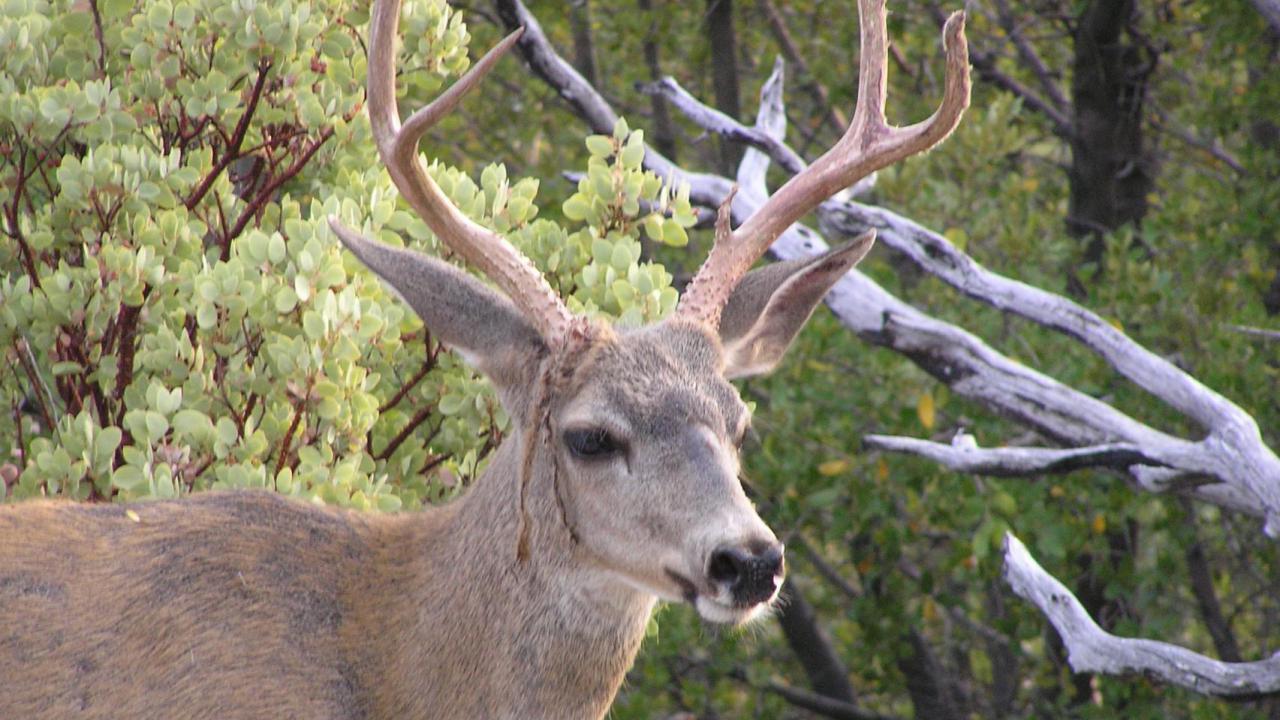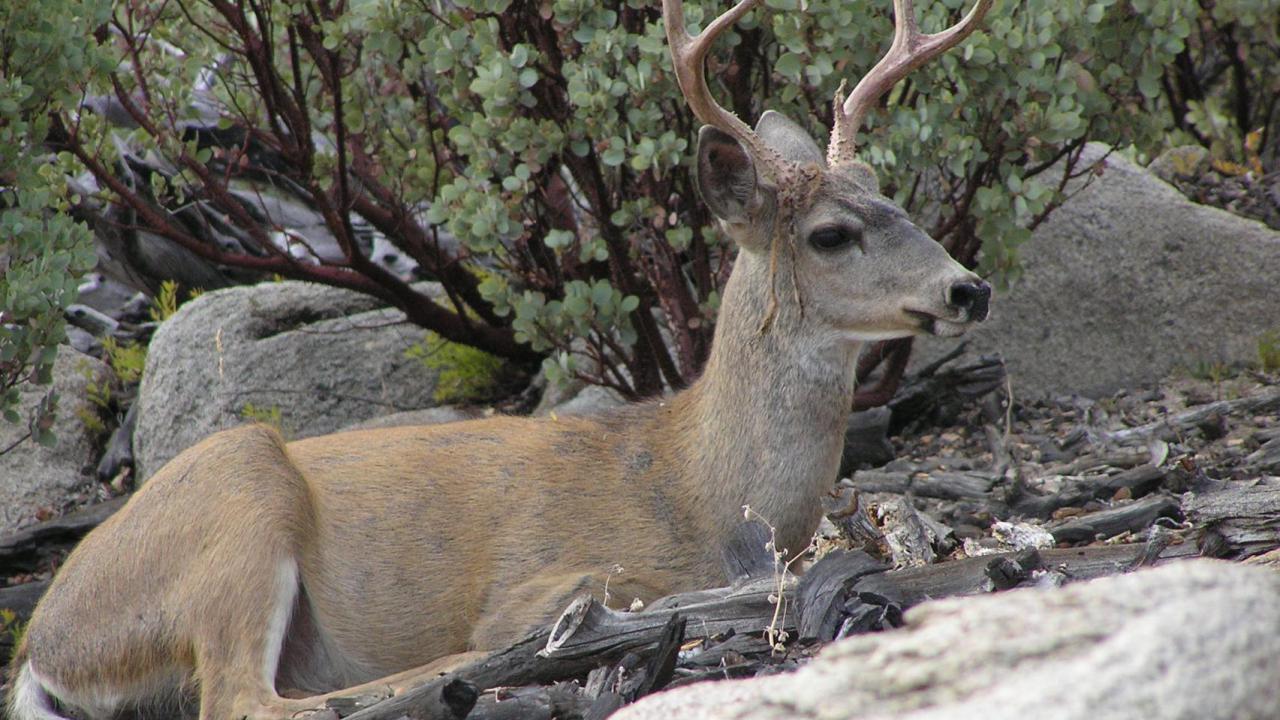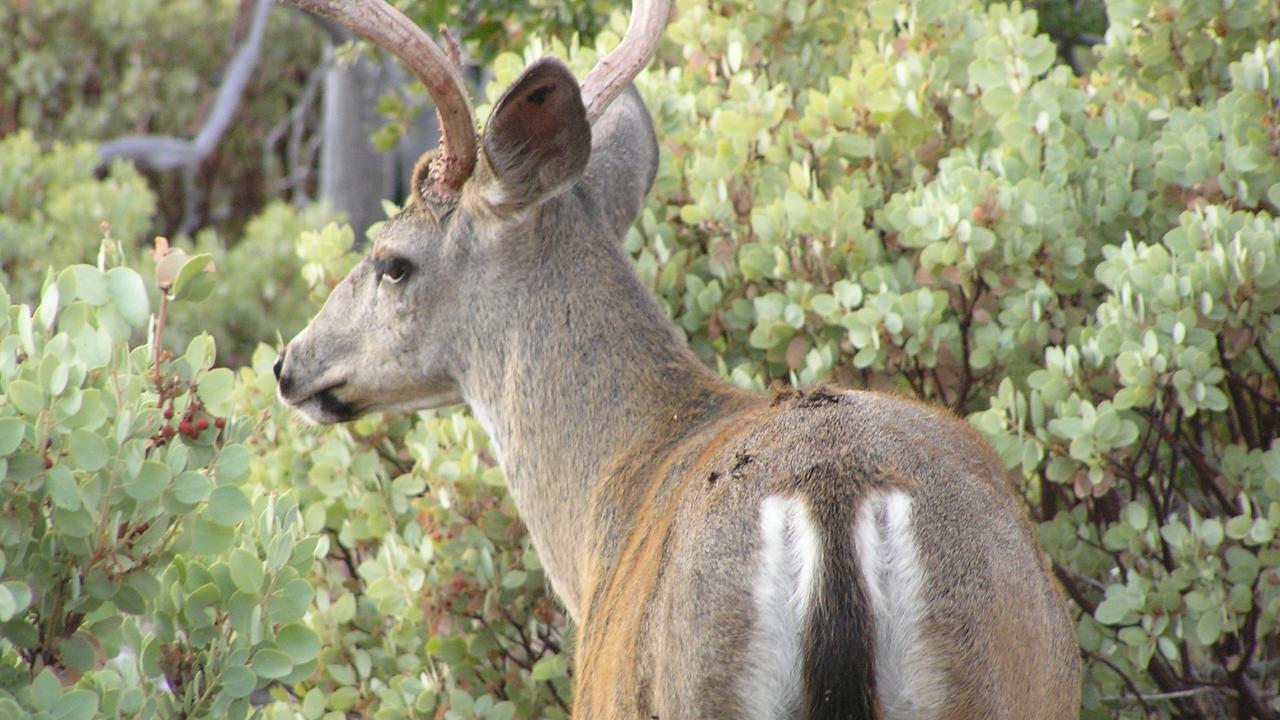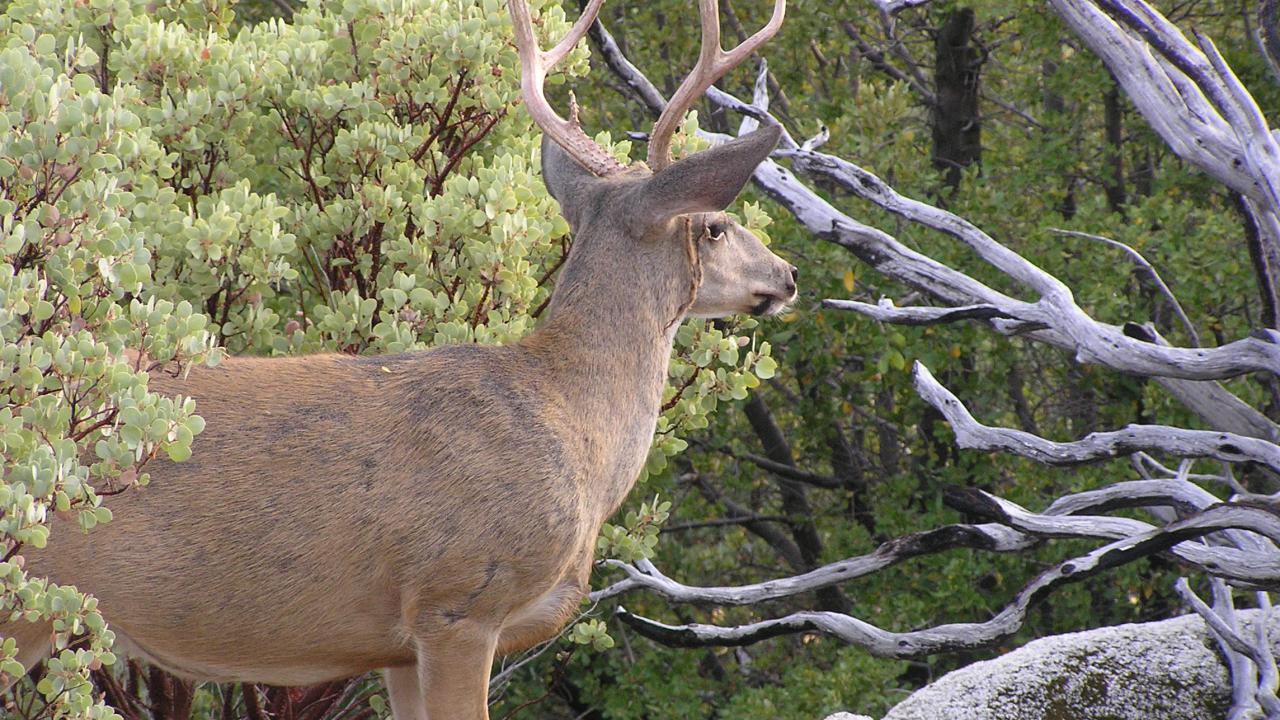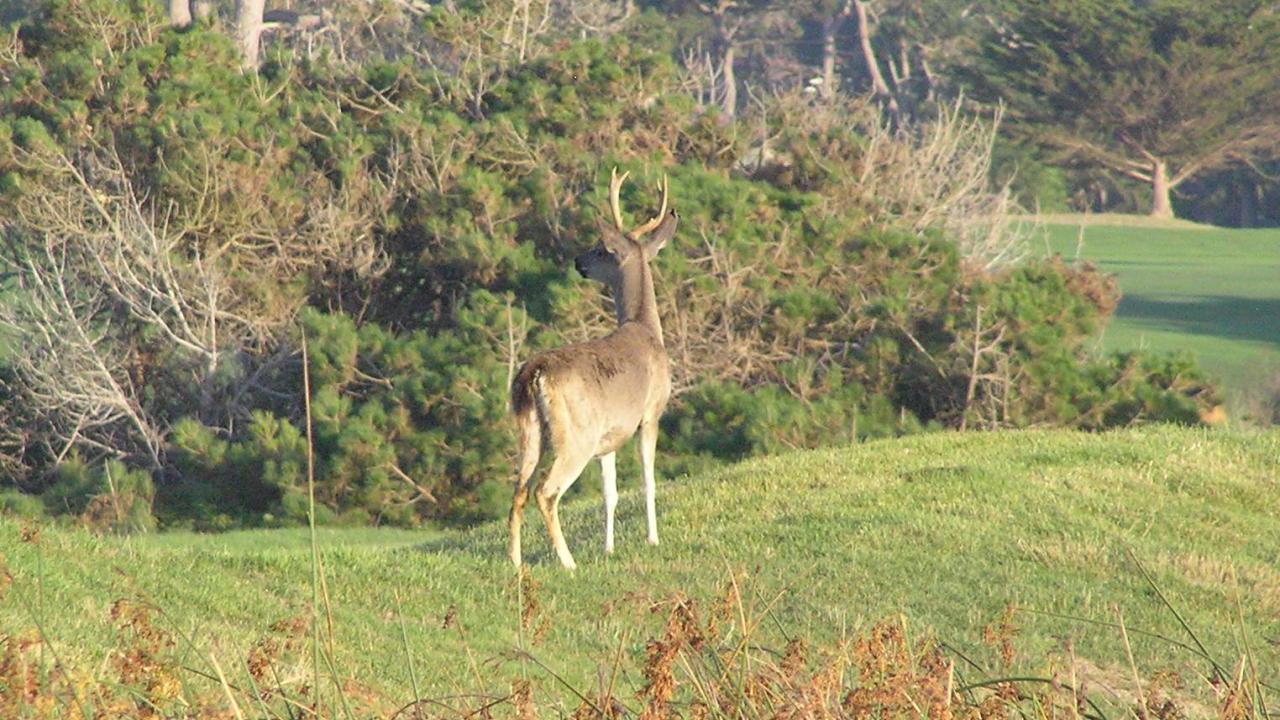Description:
Unlike the related White-tailed Deer (Odocoileus virginianus), which is found through most of North America east of the Rockies Mountains, Mule Deer are only found in the west and south-west of the US.
The most noticeable differences between White-tailed Deer and Mule Deer are the size and shape of their ears, the color of their tails, and the configuration of their antlers.
Mule Deer have distinct ears set at a 30-degree angle and are larger in size; in fact, this is why they are called "mules". White-tailed Deer have more rounded and erect ears.
The Mule Deer's tail is black-tipped whereas the White-tailed Deer's tail is not.
White-tailed Deer bucks' antlers consist of a main beam, from which different tines (points) grow upwards. Their antlers are almost always symmetrical.
The Mule Deer buck has antlers forking in two directions as they grow, splitting again to create more tines.
Finally, when running, Mule Deer have a stiff-legged, bounding hop that Whitetails do not have. White-tailed Deer gallop rather than hop.
First 4 photos: Yosemite National Park, California, USA, 10 September 2007
Last photo: Pebble Beach Golf Course, Montery, California, USA, 9 September 2007

